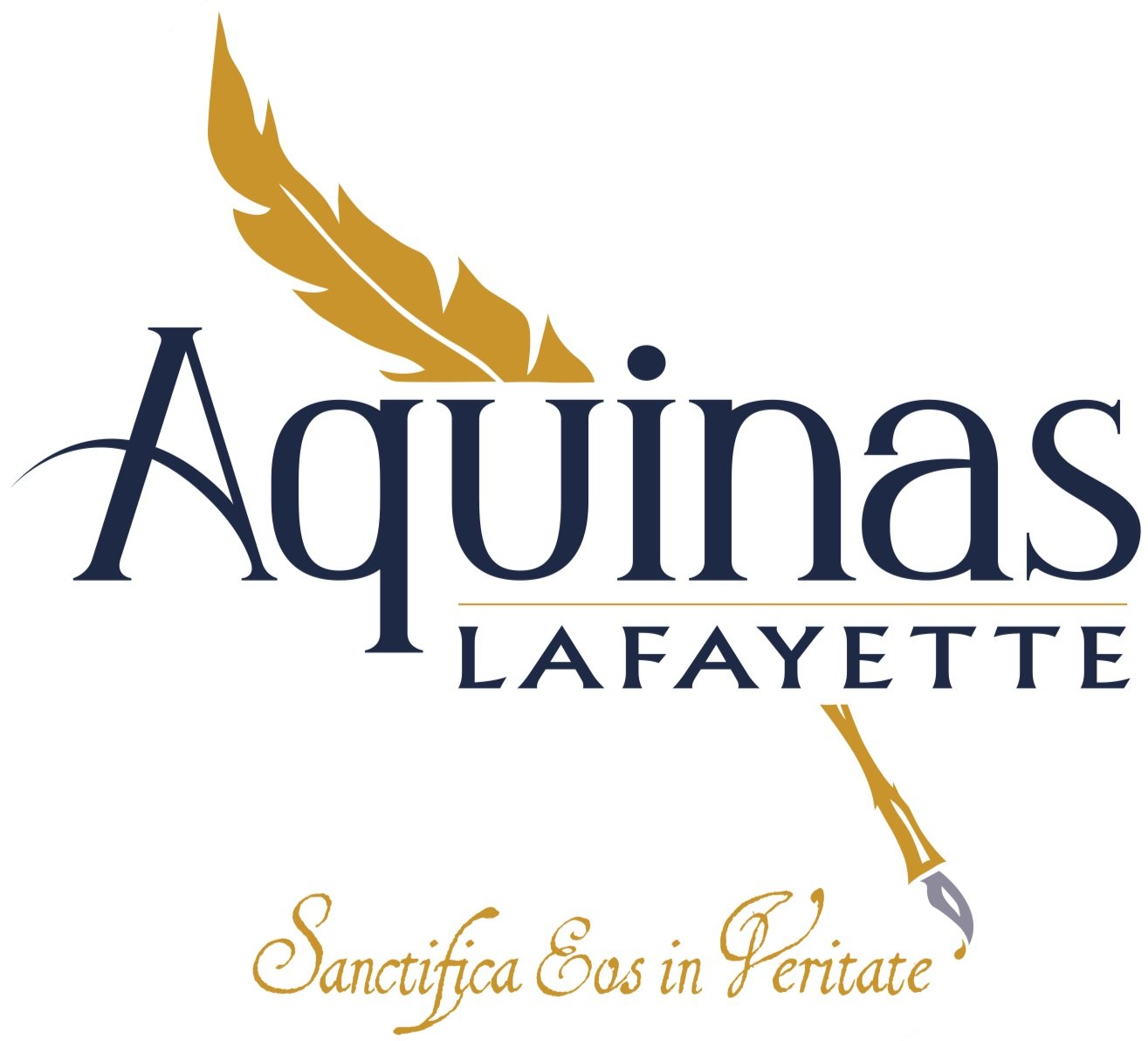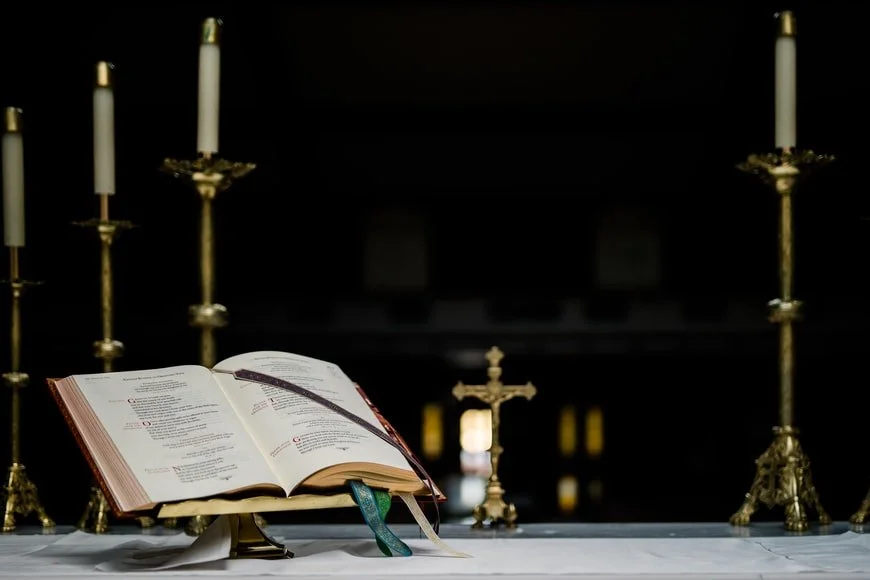Thanks Be to God
Today there is a similar scene in many American homes. Dinner tables are filled with food, football is on the TV, and families can be heard recounting many stories. The reason for the scene is the celebration of Thanksgiving, a day set aside for doing just that: giving thanks. There is plenty to be thankful for! Family, Friends, having both life’s necessities and comforts, a job, an education, and even just the gift of life itself.
But who is the giver of all these things? To whom should we we give our thanks? Quite simply, it is God. St. James says “Every good thing given and every perfect gift is from above, coming down from the Father of lights, with whom there is no variation or shifting shadow” (James 1:17). Without belief in God, I propose that Thanksgiving would be nothing more than a day by which we all give a sigh of relief that the chaotic odds of the material universe have played out in our favor. This idea is absurd, and it must be acknowledged that everything is a gift from God.
This reminds me of how I once told a priest, “I don’t know how I can thank God for his goodness to me.” The words of St. David “What shall I repay to the LORD For all His benefits to me?” weighed in my heart (Psalm 116:12). The response of the priest was simply “Go to Mass.” That statement required unpacking for me and perhaps I can do a little more of that here.
To begin, it is known that crucial to Thanksgiving is the food that is shared between loved ones. Food has always been a means by which mankind has celebrated causes worthy of festivity. In my mind, biblical examples arise such as the Passover meal, wedding feasts, and the father who slayed his fattest goat for the Prodigal Son to name a few. Secularly, the sight of any good LSU football tailgate is all that is needed to confirm this fact of life. Therefore, it is evident that our celebration of God for his many gifts would incorporate food in some fashion as it does.
The ancient Jewish people celebrated God’s graciousness with food too. Under the law of Moses, there was a thank offering that would be presented to God called the Todah, which literally means “Thanksgiving.” The Todah consisted of a meal held by someone who believed God had greatly benefited them, more often than not having saved their life. This meal was eaten in the company of friends and family, and consisted of lamb, bread, and wine. This celebration sounds like thanksgiving!
May no one doubt that God is the absolute best gift-giver. Of all of God’s gifts, the greatest that He’s given is the gift of his Son Jesus Christ through whom we receive salvation. This gift is invaluable, undeserved, and given to us solely out of God’s generosity. There is nothing that we can do to repay God for such a gift.
God knows that it is impossible that we give Him repayment. Yet, He has established a means by which humanity can at least thank Him for his sharing of divine life: The offering of the Holy Eucharist in the sacrifice of the Mass.
God the Son gave his flesh for the life of the world, giving us a means of salvation. In the Mass, this gift of God to us is re-presented to the Father once more. By the offering of the Holy Eucharist, which is the true body and blood Jesus, God is presented with the only sacrifice that has ever perfectly honored and worshipped Him. The only thing worthy of being given to God, is God himself! It can be said from this that the Eucharist is both the gift of God and that by which he has given humanity the means of returning to Him gratitude.
In fact, the word “Eucharist” comes from the Greek word Eucharistia meaning “thanksgiving.” This is why one of the central purposes of the Mass is said to be that of Thanksgiving. The preface to the Eucharistic prayer expresses this by its inclusion of the following dialogue:
Celebrant: Lift up your hearts.
Response: We Lift them up to the Lord
Celebrant: Let us give thanks to the Lord our God.
Response: It is right and just.
Celebrant: It is truly right and just, our duty and salvation, always and everywhere to give you thanks, Father most holy, through your beloved Son, Jesus Christ, your Word through whom you made all things....
The part of the Mass shows two insights: 1.) The prayers of our own hearts ought to be united to the Eucharistic Sacrifice. 2.) That offering God thanks through the Eucharist is not only a privilege but also fulfills our solemn duty to give God the praise that He is due. Finally, this aspect of thanksgiving is once more solidified as the celebrant or a deacon states at the end of Mass “The Mass has ended, Go in Peace.” The response of all present is “Thanks be to God.”
With all of this said, there is no doubt that God knew what he was doing in giving to his people the Holy Eucharist. By it, God has united a fundamental expression of our humanity, feasting, to His plan of our Salvation. By feasting at both the dinner table and the communion rail, we give thanks to God for his many gifts to us. Perhaps it's no coincidence that the word “salivating” appears similar to “salvation.”
So today let’s enjoy the time spent with family, the food that we will eat, and the football that we will watch. But let us not forget God’s great gift of salvation and the Eucharist by which we can give our thanks in return! In the words of a wise priest... “Go to Mass!”



